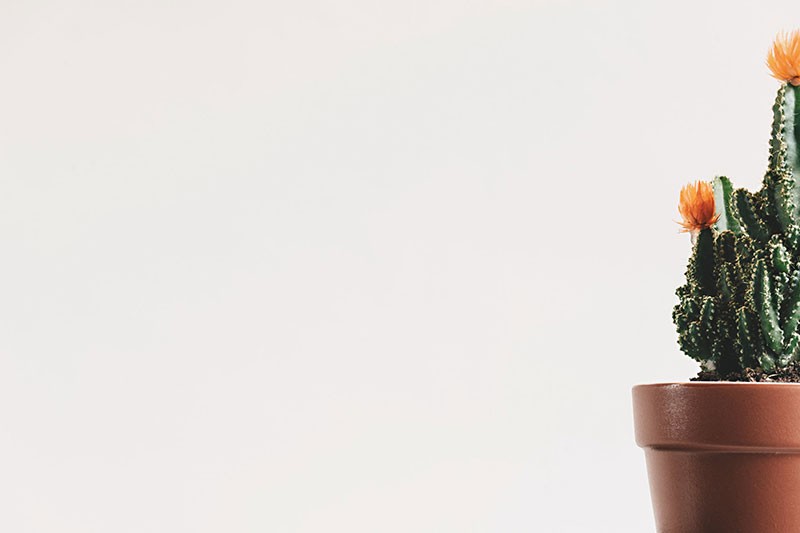What is the Psychology of minimalism - and how does this lifestyle, limited to the essentials, affect our feelings? If you want to answer these questions, you've come to the right place! Minimalism - many people associate this word with the longing for a simple, modest and orderly life. Living minimalism has many facets and ranges from cleaning out the apartment for some people to completely detaching from consumer society for others.
But what is its psychological effect? What positive effects does minimalism have on one's own psyche if one aligns one's life to a certain extent accordingly? Does it really make us happier? In this article I will answer these questions for you.
Minimalism Psychology - The effect on our emotional world
The Duden defines it as "conscious restriction to the most necessary." But if you take a closer look, you'll recognize more than that behind minimalism: an attitude to life and an art of living in its own right. In the process, a minimalist lifestyle increasingly popular. While for many people of the older generations possessions were still a sign of prosperity, the younger generations are much more interested in flexibility, mobility and the freedom that comes with it.
Living minimalism definitely has a variety of psychological benefits, which I will now explain to you in more detail.
1. minimalism gives things more meaning
Maybe you own things to which you attach a very special meaning, even if the object itself is not particularly striking. Maybe a stuffed animal that reminds you of your childhood, a camping set that reminds you of a great vacation, or a gift from a loved one that makes you think of them every time. These items are so special because they tell a story and you feel emotionally connected to them.
Living minimalism also means paying attention to things and taking care of them instead of quickly throwing them away or replacing them. It is better to own few things, but of high quality and for long-term use, than a lot of "disposable" goods. The psychological reason: by consciously limiting oneself to only a few items, one develops a stronger attachment to individual thingswhich, as a result, are then also given greater value. You give things the opportunity to tell their own story. This can lead to the paradoxical feeling that although you objectively own less, your possessions feel very valuable. This is definitely one of the most important aspects of minimalism psychology.
2. minimalism creates peace and serenity
You probably know it: you've cleaned up your apartment or home, thoroughly dusted it, polished the windows and cleaned out the closet. The feeling of having thrown off ballast lets you breathe again and also makes your thoughts seem tidier and neater. Suddenly you see some things in a different light. That's exactly how the psychology of minimalism works: by keeping things tidy on the outside, a feeling of calm and serenity sets in.
3. minimalism promotes enjoyment
How is minimalism supposed to promote pleasure? For some, the idea seems almost paradoxical, since many people associate minimalism with giving up all kinds of "pleasures". But the psychological effect behind it can be explained as follows: Through the deliberate restriction and simplicity the moments of pleasure appear all the more as something special, something apart from your routine.. If you limit yourself in your everyday life and treat yourself once in a while or buy something special, you will be able to enjoy these things all the more.
4. minimalism promotes independence

A quote from philosopher Prof. Dr. Jürgen Manemann: "The less a person owns, the more independent he or she is of any compulsion to consume. In society, consumption plays such a big role that many hide behind their property and define themselves by it."
This is also an important psychological effect. Through the psychology of minimalism, you are almost forced to deal with yourself because you are no more distraction and stimulation outside you can search for. If you can do it, you will get a better inner view and develop on a personal level.
5. minimalism helps focus on social relationships
People who go on a "media diet," i.e., consciously abstain from consuming media, unanimously report the following effect: they had more of the Need to maintain social contacts, which often affects their Social relations improved and their lives as a whole have improved in quality. After all, successful social relationships are a factor in the feeling of happiness that has been proven in many studies. Here's another fitting quote from Jürgen Manemann: "Reducing yourself to the bare essentials helps you find out what a good life can mean. Thus, through outer emptiness, inner fullness can arise."
Minimalism vs. Advertising - The Role of Business
To better understand the effect on the psyche, we should take another look at the origin of minimalism. Where does it even come from and why do we often have to "learn" it first?
In today's society, promises from the advertising industry are everywhere. We see advertising on posters, on television, and now we even take it into our room on our smartphone. All these advertising promises entice us with products whose purchase is supposed to make our lives better in some way. The advertising is intentionally psychologically designed to stimulate our emotions to the maximum. The generation of disgust or the presentation of attractive bodies are only two everyday examples. Our brain has not learned to deal with this and reacts with Stress and overloadwhich awakens the longing for minimalism in many people. Moreover, many of the products do not contribute in any way to making us happier in the long term. But why are they advertised at all?
Advertising happens for the reason that buying people promotes the growth of the economy, and as long as the economy is growing, the hope of a better life makes social differences seem tolerable.
That's why there are some people who completely embrace minimalism and renounce consumerism. You don't have to do this, of course. There are many ways in which you can naturally integrate minimalism into your everyday life and continue to live your normal life. In conclusion, I would like to give you these on the way.
Tip: "Disconnect from anything that slows you down." - if you could use some more inspiration for a minimalist everyday life, feel free to take a look at the Minimalism Quotes.
Use the psychological effect of minimalism in your everyday life
A simple guiding principle: Instead of focusing on possessions, it makes more psychological sense to focus on experiences. Cultivate social relationships that Enjoy time outside in nature, to practice a craft, to learn a new language. These are all things that cost little to nothing and from which you can derive a lot of joy in life.
Therefore, think about how you can reduce your possessions. Another advantage is that if you own little, you tend to need little money. This can result in you working less and creating more time to enjoy the most valuable things in life. Resources of man in general.
Tip: Have a look at the article about the Saving money through sustainability. There you will learn a few more reasons why a conscious lifestyle is easy on your wallet.
Keep in mind, however, that an actual lack, especially of food and physical security, will make you unhappy and depressed in the long run. Minimalism should never go so far as to endanger one's health or safety.
So do you have to give up consumption altogether? Absolutely not. Rather, this article is meant to encourage you to question your approach to possessions, raise awareness of what's really important, and examine how the psychology of minimalism can enrich your life.
Best regards,

PS: Auch dein Smartphone kannst du minimalistisch nutzen! Hier sind einige Minimalism appsthat will help you!





